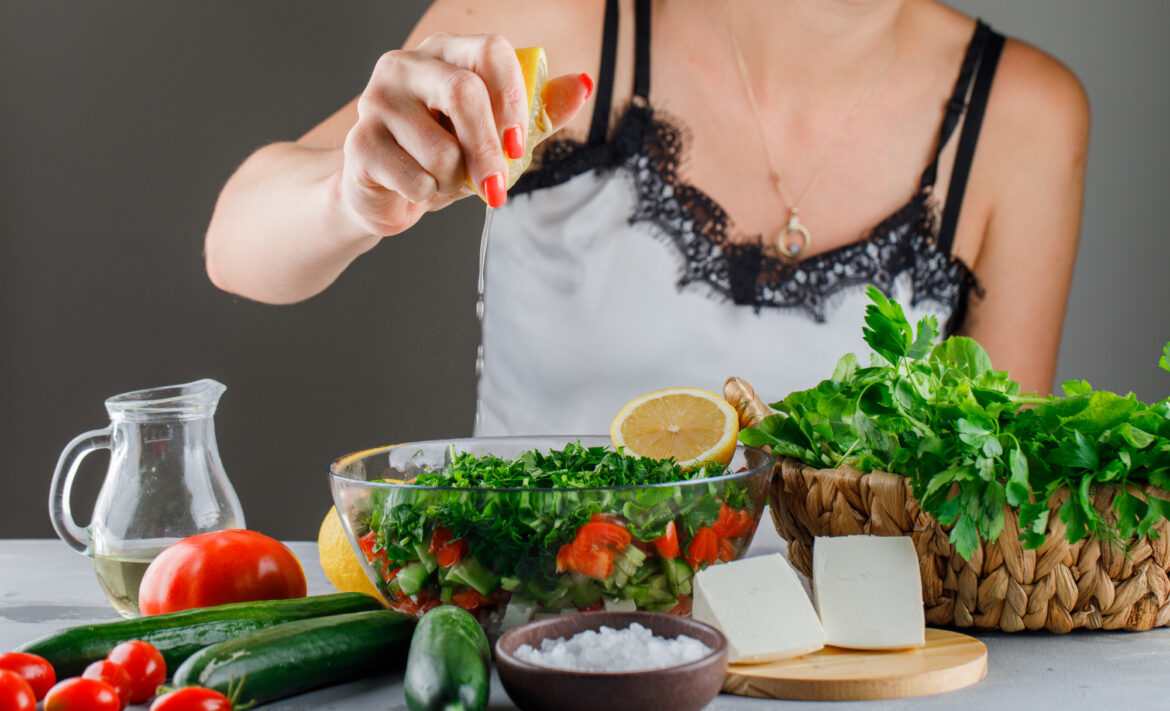Looking to feel your best and keep that youthful glow? You’re not alone! As we age, it’s natural to want to maintain our health and vitality. While there’s no magic potion for eternal youth, incorporating certain foods into your diet can make a big difference.
This article explores top 10 anti-ageing foods to add into your diet. Remember, a healthy lifestyle is key, so combine these foods with regular exercise, good sleep, and stress management for optimal results.
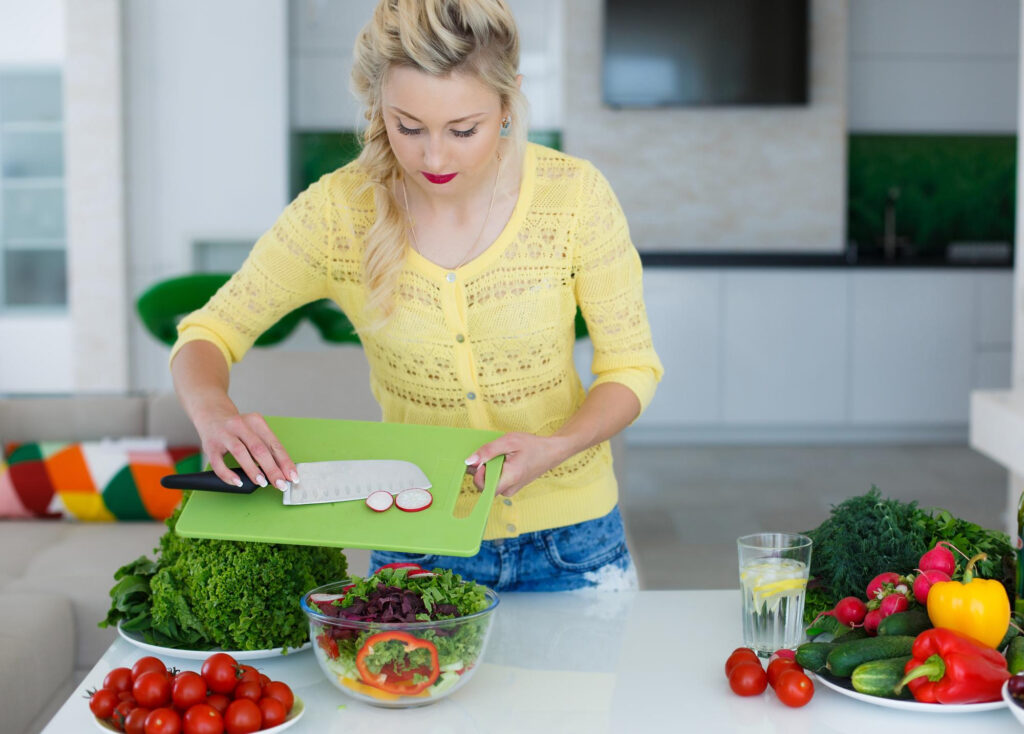
Understanding Anti-Ageing Foods
Anti-ageing foods are packed with nutrients that can help your body function optimally and combat the effects of ageing. These nutrients include:
- Antioxidants: These powerful compounds fight free radicals, unstable molecules that damage cells and contribute to ageing.
- Vitamins and minerals: Essential for numerous bodily functions, including cell repair and energy production.
- Healthy fats: Support brain health, hormone regulation, and nutrient absorption.
- Fiber: Promotes gut health, which can positively impact overall health and well-being.
Also Read: What is Biohacking and How Does it Work? A Comprehensive Guide
Top 10 Anti-Ageing Foods To Add Into Your Diet
Let’s delve into the top 10 anti-ageing foods and how they can benefit you:
1. Berries:
These tiny powerhouses are packed with antioxidants called anthocyanins. These compounds have been linked to reducing inflammation and may help protect against age-related diseases like heart disease and Alzheimer’s.
- Blueberries: Rich in antioxidants, they may improve brain function and memory.
- Strawberries: A good source of vitamin C, essential for collagen production.
- Raspberries: High in fiber, aiding digestion and weight management.
- Cranberries: Known for their urinary tract health benefits, they also contain antioxidants.
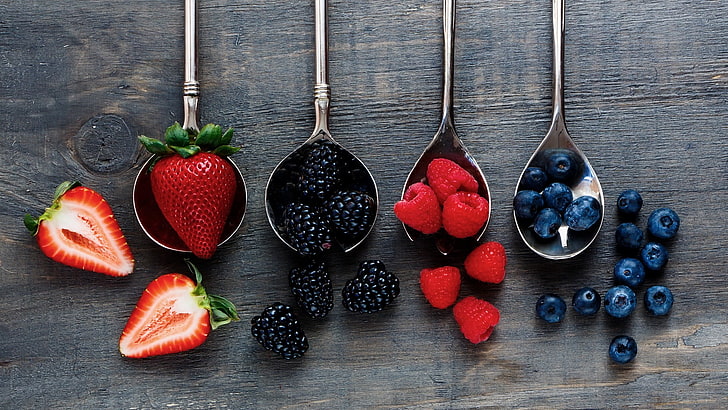
2. Fatty Fish:
Salmon, tuna, sardines, and mackerel are excellent sources of omega-3 fatty acids, particularly EPA and DHA. These fats are crucial for brain health, heart health, and may reduce the risk of cognitive decline.
3. Leafy Green Vegetables:
Spinach, kale, and other leafy greens are nutritional powerhouses. They are packed with vitamins, minerals, and antioxidants. They also provide fiber, aiding digestion and gut health.
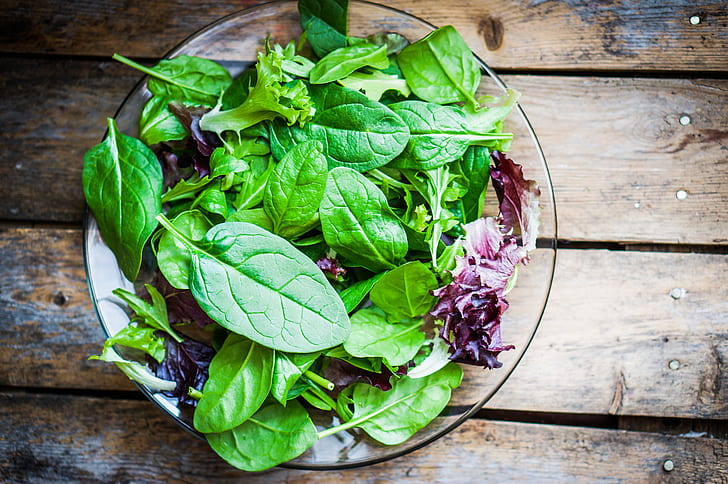
4. Avocados:
This creamy fruit is loaded with healthy fats, antioxidants, and fiber. Avocados can help improve heart health, lower cholesterol, and promote healthy skin.
5. Nuts and Seeds:
Almonds, walnuts, chia seeds, and flaxseeds are excellent sources of healthy fats, protein, and fiber. They also provide essential vitamins and minerals, including vitamin E, which has antioxidant properties.Nuts and seeds like almonds, walnuts, chia seeds, and flaxseeds.
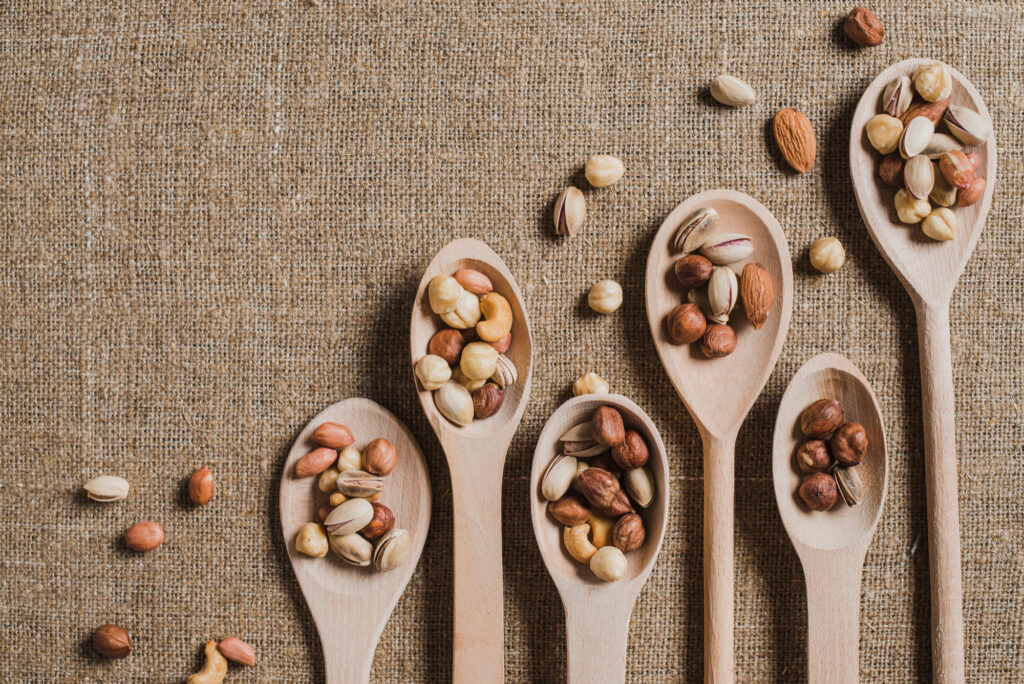
6. Extra Virgin Olive Oil:
A staple of the Mediterranean diet, extra virgin olive oil is rich in healthy monounsaturated fats and antioxidants. It can help reduce inflammation, lower bad cholesterol, and may contribute to brain health.
7. Green Tea:
This popular beverage is a powerhouse of antioxidants called catechins. Green tea may help boost metabolism, improve brain function, and protect against some cancers.
8. Yogurt:
Plain yogurt with live and active cultures is a fantastic source of protein, calcium, and probiotics. Probiotics are beneficial bacteria that contribute to gut health, which plays a role in overall well-being and immunity.
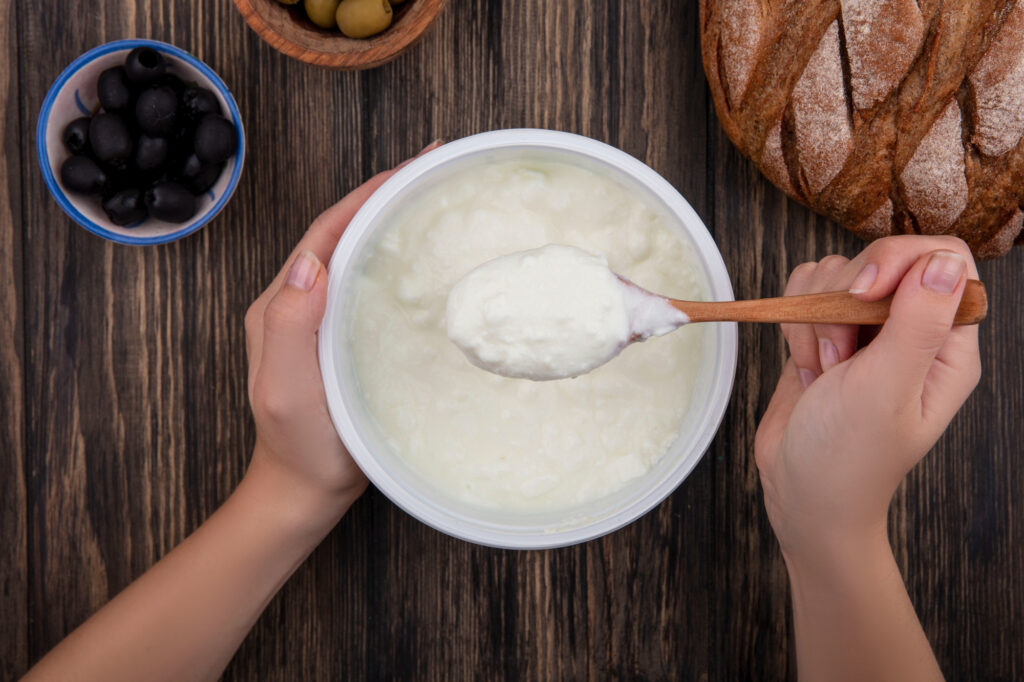
9. Dark Chocolate:
Good news for chocolate lovers! Dark chocolate with at least 70% cocoa content contains antioxidants called flavonoids. These compounds may help improve blood flow, reduce inflammation, and boost brain function. But remember, moderation is key!
10. Tomatoes:
These versatile vegetables are rich in the antioxidant lycopene. Lycopene is linked to a reduced risk of heart disease and some cancers. Enjoy tomatoes cooked or raw – cooking actually increases the bioavailability of lycopene.
Also Read: Fitness Tips | 5 Best Cardio Workouts for a Healthy Heart
Beyond the Plate: Additional Anti-Ageing Tips
- Stay hydrated: Drinking plenty of water throughout the day helps your body function optimally and keeps your skin looking healthy.
- Limit processed foods, sugary drinks, and unhealthy fats: These foods can contribute to inflammation, weight gain, and other health problems associated with ageing.
- Manage stress: Chronic stress can accelerate ageing. Find healthy ways to manage stress, such as yoga, meditation, or spending time in nature.
- Get enough sleep: Aim for 7-9 hours of quality sleep per night. Sleep is essential for cell repair and regeneration.
Remember: Consistency is Key!
The key to reaping the benefits of anti-ageing foods is to incorporate them consistently into your diet. Aim for a variety of these foods throughout the week to ensure you’re getting a good balance of essential nutrients. Remember, small changes can make a big difference over time. Start small, make healthy choices, and enjoy the journey to a healthier, more vibrant you!
Additional resources for further reading:
- The National Institute on Aging: www.nia.nih.gov
- American Heart Association: www.heart.org
- Harvard School of Public Health: www.hsph.harvard.edu
FAQs: Top 10 Anti-Ageing Foods
Frequently Asked Questions About Anti-Ageing Diets
1. Are there any downsides to eating these anti-ageing foods?
In general, these foods are safe and healthy for most people. However, there are a few things to keep in mind:
- Moderation is key: While some foods like dark chocolate are beneficial, limit them to avoid consuming too much sugar or fat.
- Allergies: If you have allergies to any of these foods, such as nuts or berries, be sure to avoid them.
- Underlying health conditions: If you have any underlying health conditions, consult your doctor before making significant changes to your diet.
2. How quickly will I see results from eating anti-ageing foods?
While you may experience some improvements in energy levels or digestion relatively quickly, the true benefits of anti-ageing foods come from consistent, long-term consumption. It’s a marathon, not a sprint!
3. Can I rely solely on these foods for anti-ageing?
While these foods are packed with beneficial nutrients, a healthy lifestyle is key for anti-ageing. Combine these foods with regular exercise, good sleep habits, and stress management for optimal results.
4. Are there any anti-ageing foods I should avoid?
Here are some foods to limit for anti-ageing:
- Processed foods: Often high in unhealthy fats, sodium, and added sugars.
- Sugary drinks: Can contribute to weight gain, inflammation, and accelerate ageing.
- Red meat: Limit red meat intake, focusing on lean proteins like fish and poultry.
- Refined carbohydrates: Opt for whole grains instead of white bread, pasta, or rice.
5. What’s the best way to incorporate these foods into my diet?
There are many ways to enjoy these anti-ageing foods! Here are some ideas:
- Add berries to your breakfast smoothie or cereal.
- Incorporate fatty fish into your weekly meals, like baked salmon or tuna salad.
- Sauté leafy greens with olive oil and garlic for a delicious side dish.
- Enjoy half an avocado with a squeeze of lemon and a sprinkle of salt.
- Top your yogurt with nuts and seeds for extra protein and crunch.
- Drizzle extra virgin olive oil on salads or vegetables.
- Enjoy a cup of green tea after a meal.
6. Are there any anti-ageing supplements I should take?
While some supplements may offer benefits, a well-balanced diet rich in anti-ageing foods is usually sufficient. Consult your doctor before taking any supplements to ensure they’re safe and interact well with your current medications.
7. I don’t like some of these foods. Are there any substitutes?
If you dislike certain foods, don’t worry! There are plenty of substitutes to reap similar benefits:
- Don’t like berries? Try other fruits rich in antioxidants like oranges, kiwis, or mangoes.
- Not a fan of fish? Flaxseeds and walnuts are good sources of omega-3s.
- Can’t stand leafy greens? Broccoli and Brussels sprouts offer similar nutrients.
8. What’s the difference between organic and non-organic produce?
Organic produce is grown without synthetic pesticides and fertilizers. While some prefer organic for potential health benefits, both organic and non-organic can be part of a healthy diet.
9. Is it expensive to eat an anti-ageing diet?
Eating anti-ageing doesn’t have to be expensive! Focus on seasonal produce, cook at home more often, and buy in bulk when possible. Look for affordable protein options like beans and lentils.
10. How can I stay motivated to eat healthy long-term?
- Set realistic goals: Start by making small changes and gradually add more anti-ageing foods to your diet.
- Find a buddy: Partner with a friend or family member for support and accountability.
- Experiment with recipes: Look for exciting new ways to prepare these healthy foods.
- Focus on the positive: Remind yourself how good you feel when you eat nutritious meals.
